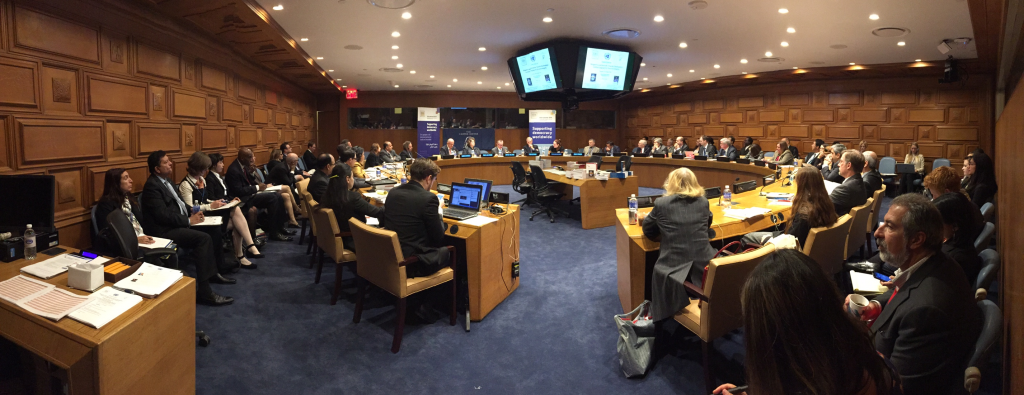The Carter Center joined forces with the International Institute for Democracy and Electoral Assistance to launch a pair of complementary manuals for assessing elections on Oct. 28, 2014, at the United Nations in New York. The event was hosted by the U.N. Electoral Assistance Division and attended by representatives from a wide range of electoral assistance organizations and U.N. member states.
The launch event featured Carter Center CEO Ambassador (Ret.) Mary Ann Peters and International IDEA Secretary General Yves Leterme. A webcast can be viewed here.
The Carter Center’s handbook, Election Obligations and Standards: A Carter Center Assessment Manual, serves as a companion to the newly redesigned Election Obligations and Standards (EOS) database. Together, these tools aim to provide observers a consistent, transparent framework for assessing elections and strengthen citizens’ ability to hold authorities accountable when they fail to meet their democratic obligations.
First launched in 2010 as the Database of Obligations for Democratic Elections, the new EOS database consolidates nearly 200 sources of public international law related to human rights and elections. This easily searchable tool helps users understand how important obligations such as the right and opportunity to vote, freedom from discrimination, and freedom of association apply to each phase of the process, from the design of electoral laws to the resolution of disputes long after votes are counted. The database is available at eos.cartercenter.org.
The Election Obligations and Standards manual is also available online. In an easily referenced format, it links the public international law obligations found in the database to specific issues that arise during each phase of the electoral process.
The handbook and database were developed with continuous input from election experts and legal scholars. In an effort to ensure consensus on the terms and principles used going forward, The Carter Center and International IDEA agreed on a set of 21 obligations used as the framework for both The Carter Center’s new tools and International IDEA’s manual, International Obligations for Elections: Guidelines for Reviewing Legal Frameworks.
The Carter Center aims to update the handbook and database regularly to keep pace with new international law and ensure continued relevance.
Click here to learn more about The Carter Center’s tools.

